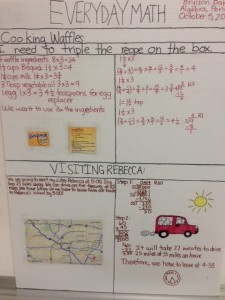In the 19th century, the foundation of a good education was grounded in reading, writing and arithmetic. In the 20th, the mandate was to provide a sound liberal-arts education. Though we only have early returns to go on, the voting for the 21st century seems to be overwhelmingly in favor of a STEM education. This is not to say, of course, that literacy and numeracy are defunct concepts with no place in the modern world, or that being broadly read, being a critical thinker, and valuing the arts are lost causes—far from it. But it is to say that there are skills that students learn as part of a STEM curriculum that are essential to success in the 21st century.
Being able to collaborate with others in an atmosphere of cooperation and understanding is essential to accomplishing goals in any joint project. Team members have to feel that their ideas and contributions are valued and that they are respected members of the team. STEM subjects, because of their commitment to project-based learning and real-world applications foster that kind of collaboration and develop the skill, whether in competition, experiment or in communicating the results of their project to the community at large. In addition, students are encouraged to be innovative, to think creatively—they are encouraged to try the new, to stray from the well-worn paths of others, regardless of success, because with each unsuccessful attempt they learn what doesn’t work, and why. Innovation is never a straight path from concept to product—there are always trials and errors along the way. This teaches students to persevere, to remain committed, to press on even though it might be their 5th or 50th attempt. As Edison well knew, unsuccessful attempts teach more than successes; each failed attempt is one step closer to understanding, and succeeding. At Village Glen we believe that these skills: collaboration, creativity and perseverance, are essential for success in any career; they are foundational skills no less than literacy, critical thinking, facility with numbers, and an appreciation of the arts.

